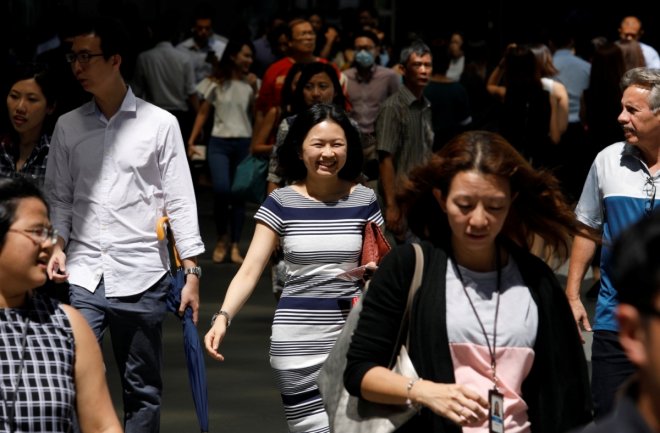
A new study has found that fresh graduates in Singapore seek quick professional development and higher salaries within the first year of their employment. At the same time most of them bear little or no knowledge about the functionality of the industry and are against long working hours with variable shifts.
Online recruitment site Monster.com conducted a survey comprising of 2368 job seekers and employers from Singapore, Malaysia and Philippines. Although, more than 500 responses came from Singapore, the other countries in concern share the similar trend.
The report showed that 47% of Singapore graduates took three months to get hold of their first job, but surprisingly 30% of the graduates called it quits in less than a year.
According to the survey, the main reasons behind this trend are many. 67% of the graduates seek professional growth, 42% are dissatisfied with their salary therefore seeks a salary hike, 30% of the new comers opt for a different career whereas 21% of the graduates look for better opportunities.
Amongst the fresh graduates, 61% lack proper knowledge on industry functionality and 34% are without proper mentorship. Most of them however are not fully equipped to handle long working hours with shifts. These drawbacks stand as a hindrance to professional development.
In Singapore, Malaysia and Philippines 80% of the employers claim to provide fresh graduates with adequate support that is bound to nourish young talents. Unfortunately 37% of the graduates do not stay more than two years.
Sanjay Modi, managing director of Monster.com, APAC and Middle East, states that the findings clearly point out the differences and communication gap between employer and employee expectations, focusing primarily on the issue of mentorship.
"Evidently, young talent expect to move quickly in their first jobs... and they crave the mentorship and support necessary to get there," Sanjay Modi told The New Paper.
He further added that the fresh graduates must give themselves the time to figure out their strength and weaknesses. The problem with the fresher graduates, according to him is that they have unrealistic expectations regarding salaries and they should realize how big a consideration money is.
"This mismatch is a cause of concern and a wake-up call for both employers and fresh grads to take concrete steps and hit the right balance between their expectations and needs" said Modi.
A 24 year old programme executive left her job as she felt it was obstructing her growth whereas for her friends, it took more than three months to get into a job and they accepted whatever was offered to them.
"If they take up something they don't like, they are likely to quit in less than a year," she said.
A 27 year old research assistant quit his job in a hospital after nine months due to poor mentorship.
The survey also focused on job interviews, where 68% of the employers gave importance to an applicant's job experience, 58% for qualifications and education and 45% for a well structured and attractive resume.
A bulk of Singapore's fresh graduates revealed not asking questions led to all the miscommunication and added to that 51% of them did not do proper research on the company whereas only 10% focused too much on the salary, complicating the situation further.
"If you go for an interview, do your best to secure the offer. Other negotiations such as salary can come later" said Alvin Ang, director of talent acquisition at Quantum Leap Career Consultancy.
He further stated that lack of self-satisfaction is the reason behind why job seekers fail to grasp a job offer as they have various interviews lined up.








